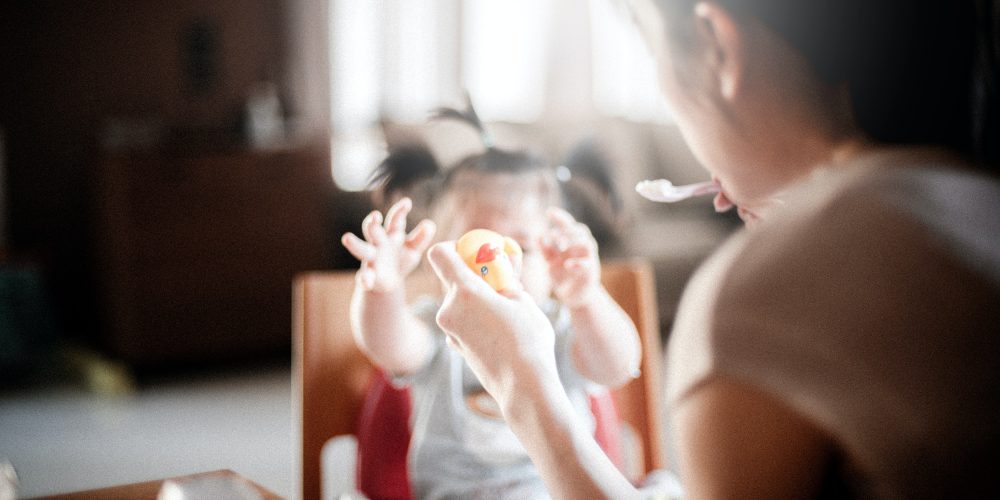In February of this year, I turned 23; the age my mother was when she had me. The thought of me having a baby at this age seems ludicrous but, of course, my mum’s generation experienced their twenties in a very different time to those of us that are in them now.
Although my timing will inevitably be different to the way my mum did things, I know that someday I will want children of my own. Being a mother is something that I’ve always felt I was destined for and (providing I am fortunate enough to be able to do so) is an exciting part of my future that I find myself daydreaming about every now and then, on the drive to work, or when I pass a mother and her child in the supermarket.
Daydreams aside, it’s difficult not to feel concerned about the planet I would potentially be raising my future children in. With every kilometre of forest that is destroyed to make way for more man-made sources of pollution, every species we grew up with that our children will never see due to its extinction, and every half degree increase in global temperature, it feels as though Earth is becoming less and less inhabitable with every passing year. Many of us have experienced the sense of helplessness that comes from feeling like our actions will never have enough of an impact to change the future but, if the rise of veganism in the last couple of years tells us anything, the combined efforts of individuals can actually make a tremendous difference.
So, as people who have already adopted a lifestyle that is proven to be more beneficial to our environment, do vegans have a responsibility to raise our children the same way?
The number of people who have been raised vegan is dwarfed by the number of us that chose veganism after years of being omnivorous or vegetarian, so, firstly, just how well-tread is this territory? Is raising our babies vegan safe, healthy, or even doable?
I’m fortunate enough to know mothers who are living proof that raising vegan children is, indeed, all of the above; their kids are indistinguishable from their omnivorous peers in terms of visible health and sprightliness, as well as having a positive relationship with those ‘dreaded greens’, and a compassion towards all animals that many non-vegan children are not taught to have. In fact, most vegan mothers I’ve encountered believe that the difficult part about raising their children vegan is not veganism itself, but having to deal with the behaviour of non-vegans around them.
For example, one mum I spoke to told me about how her daughter’s school had arranged for a school trip to a dairy farm. Understandably horrified, she refused to let her child attend the trip and complained to the school, knowing full well that the ‘child-friendly’ version of events that a dairy farm would relay to a group of primary school children about the production of milk would be unforgivably far from the truth. Situations like this, which involve non-vegan practices that have simply been accepted as ‘normal’ for so many years, force a mother to have to risk isolating her child from their classmates.
The thing that makes the thought of what our children will encounter at school even more daunting, is the attitude that some non-vegan mothers have towards veganism. I told someone who had recently had a baby that, if I was to have a child, I would raise them vegan. This was met with hostility and defensiveness; she claimed that the fact that she fed her baby animal products meant that I was judging her, despite the fact that I hadn’t commented on the way she chose to raise her child at all. It makes you wonder, if this is the way that some grown adults react to veganism, how will their children treat someone in their class being vegan, when they are even less adept at thinking rationally than their parents?
Of course, for every mother who responds to veganism with criticism, there is another who is open and interested in learning about a new way of eating or feeding their baby. My own aunt for example, who is not vegan, regularly asks me about vegan options that her one-year-old son would enjoy. My cousin is being raised on a mixture of omnivorous, vegetarian and vegan meals, meaning that as he grows up he will know that not every dinner needs to feature animal products to be enjoyable. It may not be a full conversion to veganism, but it’s definitely better than nothing. Introducing veganism to children should not be seen as a way of being ‘better’ than other mothers, but rather as a healthy and environmentally-friendly alternative to the way they are used to eating.
There are many aspects of having children that feel daunting to me, from morning sickness and childbirth, to having difficult conversations with my children and teaching them right from wrong. Throwing veganism into the mix can seem like a way of making a difficult job even harder, but I take comfort in the fact that every year it becomes easier to be vegan. I only gave up animal products last January, and in just over a year I have seen a vast increase in the number of vegan options at restaurants, in supermarkets, and people who are not only beginning to learn what veganism is, but are willing to give it a try. Therefore, I have faith that by the time I get around to having babies of my own, they’ll be part of a generation who are more compassionate towards animals and our planet, and who might even consider veganism to be more ‘the norm’ than an omnivorous diet.

